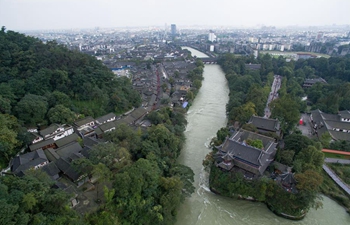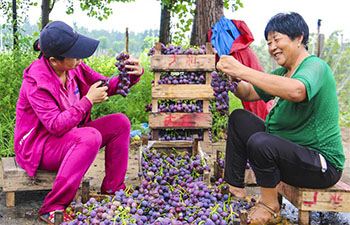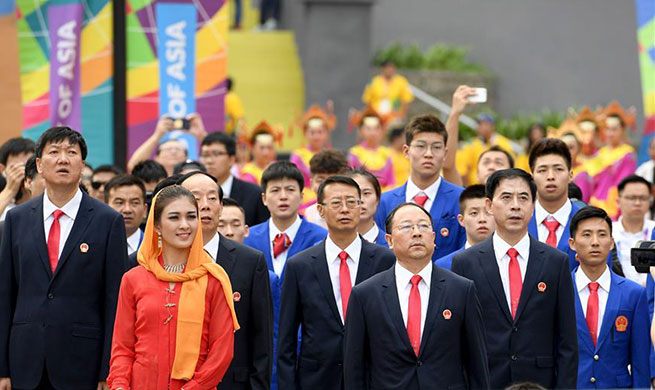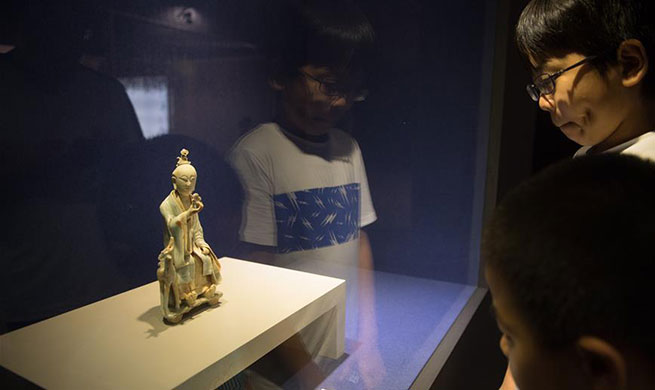BEIJING, Aug. 16 (Xinhua) -- A new regulation will allow residents of Hong Kong, Macao, and Taiwan to apply for residence permits in the Chinese mainland.
A document issued at a press conference held by the State Council Information Office Thursday said the regulation, to be promulgated by the State Council General Office, will take effect from September 1.
With a residence permit, residents from Hong Kong, Macao, and Taiwan will enjoy more rights, basic public services, and other conveniences relating to their study, work, business operation, and life in the mainland, the document said.
Shi Jun, vice minister of public security, Huang Liuquan, vice director of the Hong Kong and Macao Affairs Office of the State Council, and Long Mingbiao, vice director of the Taiwan Affairs Office of the State Council, attended the press conference.
According to the officials, the new regulation aims to alleviate inconveniences people from Hong Kong, Macao, and Taiwan may encounter in the mainland when they purchase tickets online, check in at hotels or use financial services.
The new residence permits will enable them to enjoy public services and other conveniences that are basically the same with those of mainland residents such as rights regarding employment, social security, and the housing provident fund as well as benefits of compulsory education, health and medical services, legal assistance, and other legal services.
Moreover, Hong Kong, Macao, and Taiwan residents with mainland residence permits will be allowed to register their vehicles, apply for driver's licenses, and take professional qualification exams.
Their shopping and other entertainment activities will also be expedited.
Eligible applicants may apply for this permit on a voluntary basis, according to the officials.
The report to the 19th National Congress of the Communist Party of China pledged to formulate and improve policies and measures to make it more convenient for people from Hong Kong and Macao to develop careers on the mainland. It also said efforts will be made to ensure that over time, people from Taiwan will enjoy the same treatment as mainland residents when they pursue their studies, start businesses, seek jobs, or live on the mainland.



















